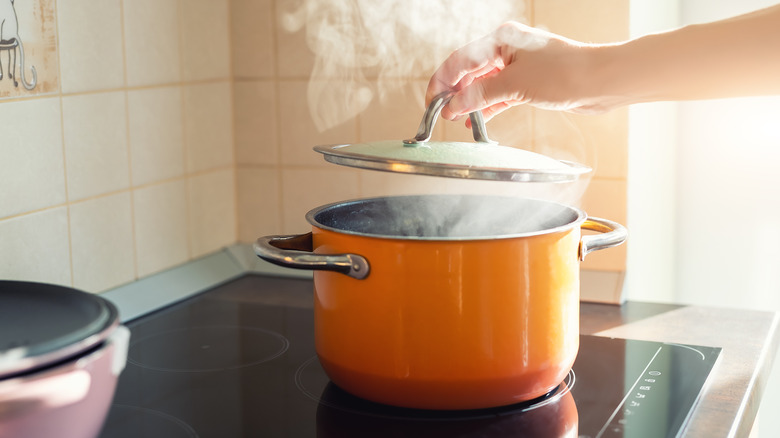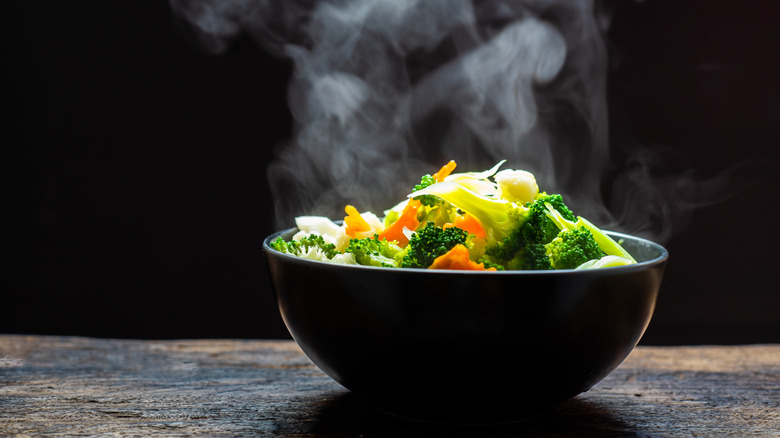Does Boiling Vegetables Really Lose Nutrients?
Vegetables are without a doubt a great way to feed your body. Within them, you'll get all kinds of great nutrients that you need to eat a healthy diet. But, the truth is that not all cooking methods will yield the same nutritional results. And the reality of which cooking method is best for preserving all of those valuable, health-beneficial goodies in your veggies may surprise you.
There's a common belief that boiling vegetables can cause them to lose vital nutrients during the process. However, that isn't a fundamental truth. Now, it is generally accepted that cooking vegetables can actually make it easier for the body to absorb its great nutrients, but different methods can also destroy some of the nutrients in the process according to Healthline. Some, for instance, are water-soluble and therefore vulnerable to breaking down in the midst of a hot water cooking process.
Two of the vitamins at the highest risk of being lost when boiling vegetables are the water-soluble vitamins C and B, which can lose their effectiveness up to 50% and 60%, respectively. But that isn't reason enough to completely stop boiling your vegetables — it's all about finding the right cooking method for you.
You should eat vegetables prepared in many different ways
According to the New York Times, cooking vegetables both minimizes and maximizes different nutrients in different sorts of produce. That means vegetables that are consumed raw, boiled, microwaved, steamed, and roasted (among other cooking methods) all offer benefits in terms of nutrient values. Those exact values will vary between all of these preparations. Essentially, eat enough raw vegetables to get the most of the vitamin C nutrients as you can, but eat cooked vegetables for vitamins A, D, E, and K, among others. (If that seems like a lot, consider the fact that it would be pretty boring to just eat one vegetable cooked the same way all the time.)
While we're at it, you should know that frozen vegetables can actually pack in more of some nutrients than their fresh brethren. As produce ripens and ages during the sorting, packing, and transporting processes to take them from field to grocery store to kitchen table, they actually lose some of their nutrients. So, don't worry about stocking up on frozen veggies. They're good for you too as long as you mix up how you prepare and consume them. Plus, frozen foods are wonderfully convenient and can make for some seriously delicious meals.

